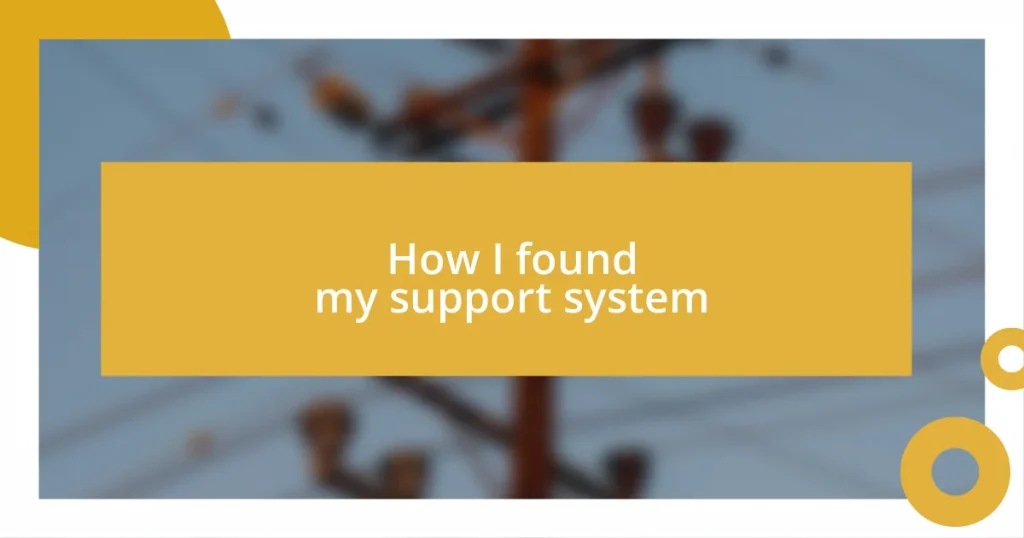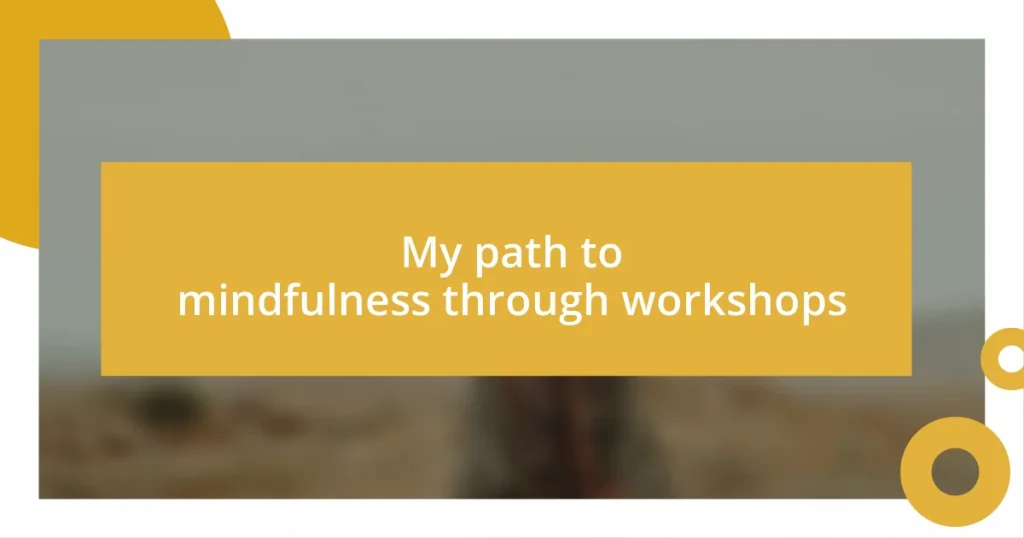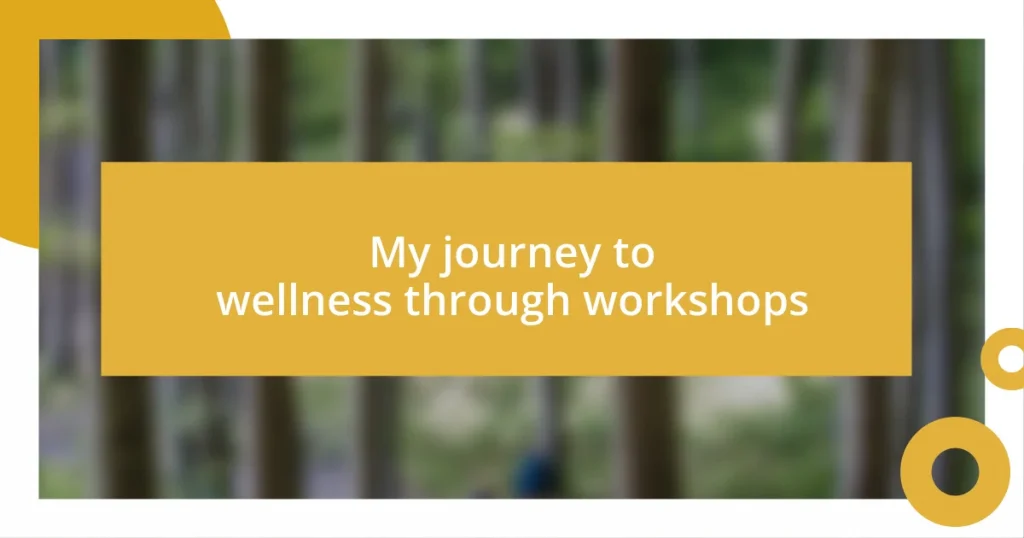Key takeaways:
- Engaging in honest self-reflection helps identify personal support needs and types of help that resonate, whether emotional, practical, or simply companionship.
- Community activities, such as gardening clubs and volunteering, foster connections and mutual vulnerability, creating informal support systems through shared experiences.
- Building relationships with mentors enhances support, offering guidance and confidence, while utilizing online resources provides a platform for connection and shared wisdom during challenging times.
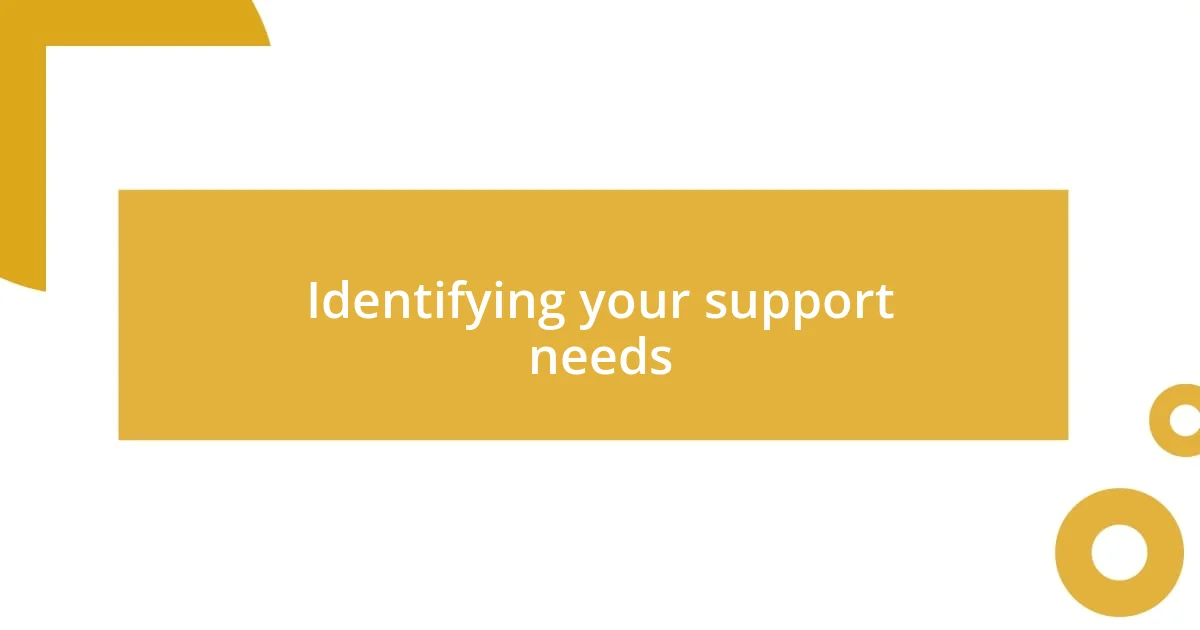
Identifying your support needs
Identifying your support needs can feel like a daunting task, but it starts with honest self-reflection. I remember sitting in front of a mirror after a particularly rough day, realizing I couldn’t do everything alone. It made me question, what exactly do I need from those around me to feel supported?
Sometimes, it’s not about asking for help but knowing what type of help truly resonates with you. I once found myself overwhelmed trying to fit into someone else’s idea of support—like when a friend insisted on offering advice, while I just needed a listening ear. Have you ever felt that disconnect? Understanding whether you need emotional validation, practical help, or even just someone who can share in your silence can significantly shape your support system.
Additionally, consider past experiences where you felt supported—or unsupported. I recall a time when a simple text from a friend checking in on me made all the difference. That moment taught me that emotional support is often subtle but essential. What meaningful actions have buoyed you in tough times? Reflecting on these moments can help clarify the kind of support that resonates most with you.
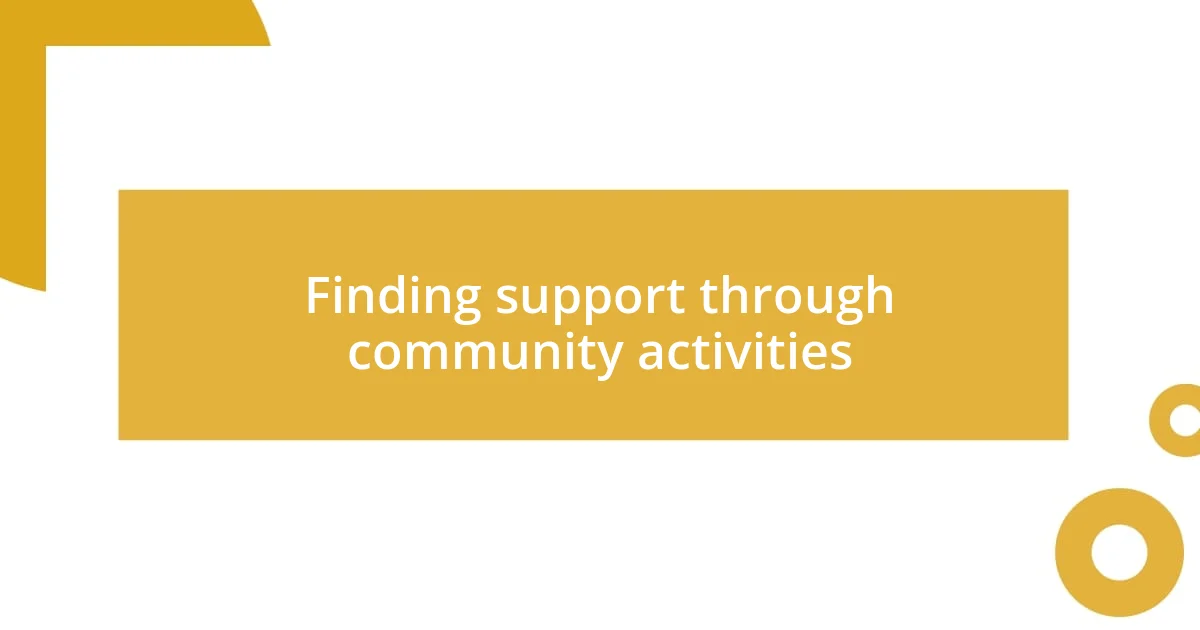
Finding support through community activities
Finding support through community activities can open up avenues I never even considered. Joining a local gardening club was a pivotal moment for me. I wasn’t just cultivating plants; I was also cultivating friendships. The shared labor and laughter bonded us in ways that individual efforts couldn’t. Have you ever noticed how collective experiences can dissolve barriers?
In another instance, volunteering at a community shelter connected me to individuals who, like me, were searching for purpose and support. It was inspiring to witness how shared goals can unite diverse people. I felt more confident discussing my struggles when surrounded by others who openly shared theirs. This mutual vulnerability turned our group into a makeshift support system. Isn’t it interesting how a simple act of giving back can become a source of strength?
Additionally, I found that participating in book clubs or discussion groups can foster dialogue about personal challenges. Hearing others’ perspectives often sparks insights that resonate deeply with my experiences. I’ve discovered that sitting around a table, discussing a novel, can lead to the most profound conversations about life and support. What has been your experience with such community interactions?
| Community Activity | Benefit |
|---|---|
| Gardening Club | Fosters friendships through shared labor and laughter |
| Volunteering at a Shelter | Creates connections through mutual vulnerability and shared goals |
| Book Club | Encourages dialogue and sharing of personal challenges |
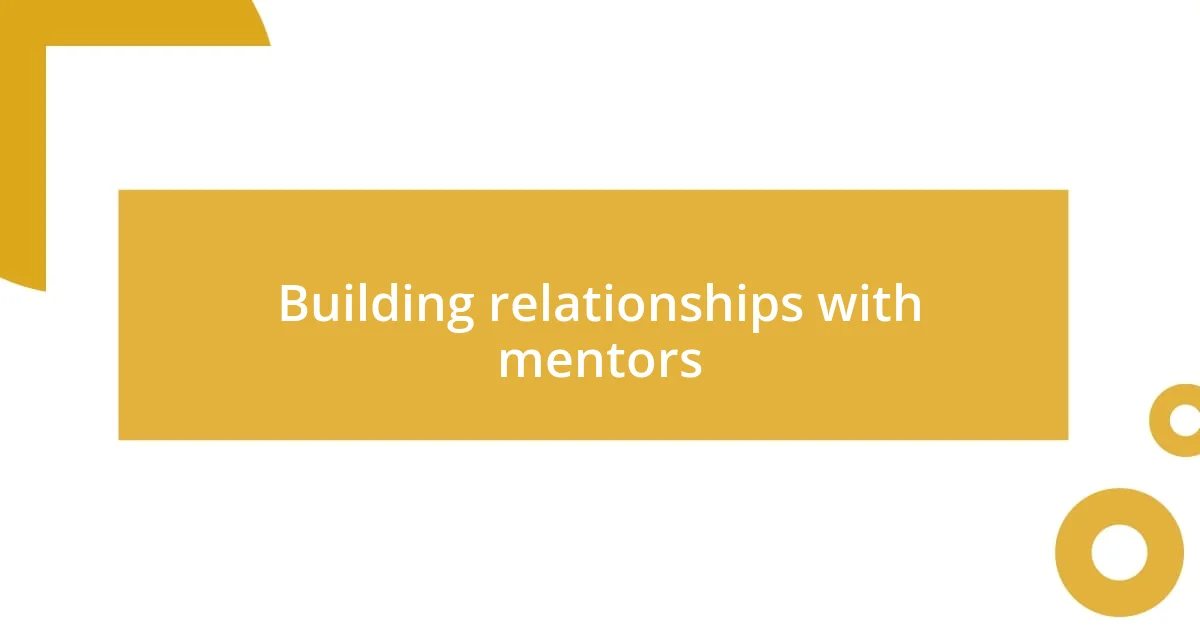
Building relationships with mentors
Building relationships with mentors can be one of the most impactful ways to enhance your support system. I’ve always found that the right mentor can illuminate paths I hadn’t considered before. I remember reaching out to a professor after struggling with a complex project. Not only did they offer guidance, but their encouragement also sparked a newfound confidence in my abilities. That connection turned into regular meetings, creating a space where my challenges felt lighter just by discussing them.
When nurturing these relationships, consider the following steps:
- Be open and honest: Share your struggles and goals. Vulnerability builds trust.
- Seek feedback: Ask your mentor for constructive criticism to improve your skills.
- Show appreciation: A simple thank-you note or acknowledgment can go a long way in strengthening your bond.
- Be proactive: Initiate meetings and discussions to keep the connection active and meaningful.
- Learn from challenges: Discuss setbacks and learn how your mentor navigated similar situations to gain perspective.
Fostering relationships with mentors is a continuous journey, and every interaction can provide valuable insights that shape both personal and professional growth.
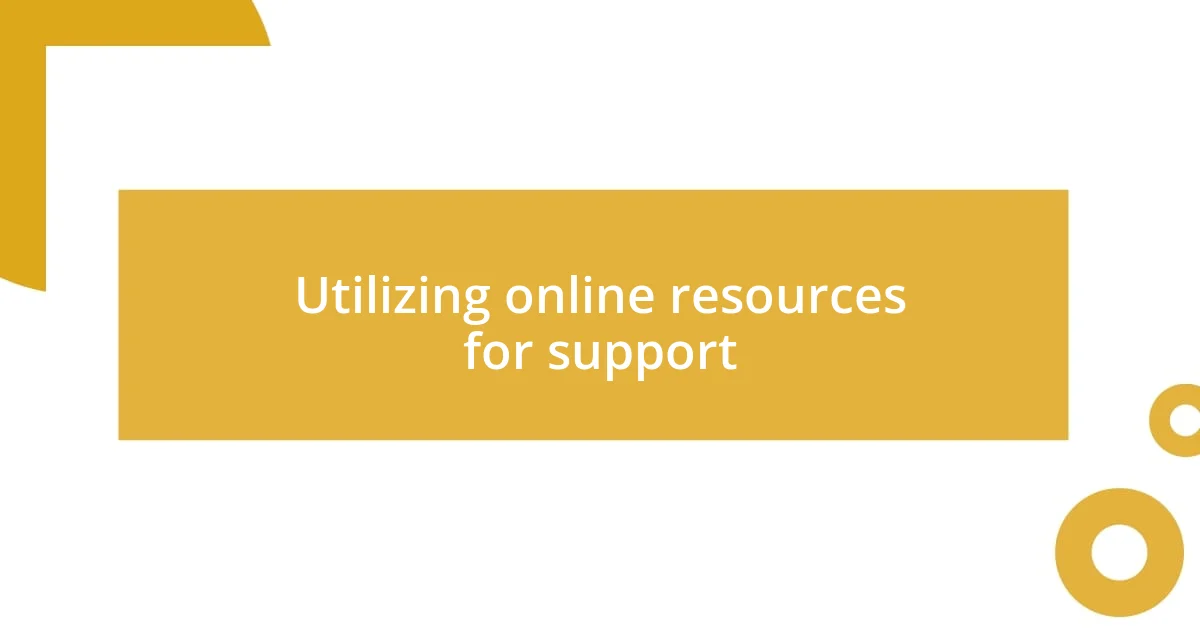
Utilizing online resources for support
Utilizing online resources for support can be a game changer. I remember the first time I stumbled upon a mental health forum during a particularly challenging period in my life. It was comforting to read others’ stories and realize I wasn’t alone. The anonymity of the internet allowed people to open up in ways that sometimes feel daunting face-to-face. Have you ever felt the same surge of relief from reading someone else’s experience?
Social media platforms also played a significant role in my support journey. I joined several groups centered around shared interests and common struggles. Seeing posts filled with encouragement and advice made me feel more connected. I vividly recall a post where someone shared their coping strategies for anxiety. Reading through the comments, I realized just how many people were not only willing to help but also eager to share their personal victories and setbacks. This collective wisdom turned my scrolling into a source of inspiration.
Online resources like webinars and podcasts also enriched my understanding of personal challenges. I often found myself jotting down notes during a podcast episode on resilience. The insights provided practical tips that I could apply immediately, making the content feel actionable and relatable. These resources turned my isolation into a journey of learning and growth. Isn’t it fascinating how the digital world can bring us together, even when we’re miles apart?










